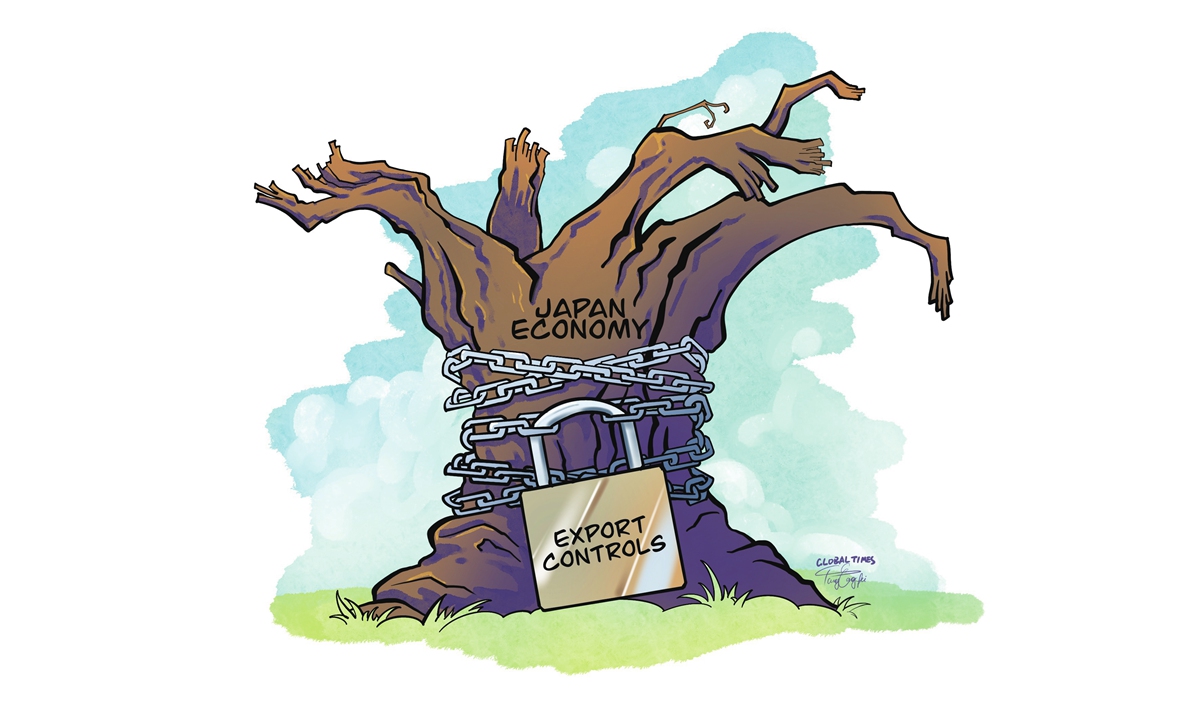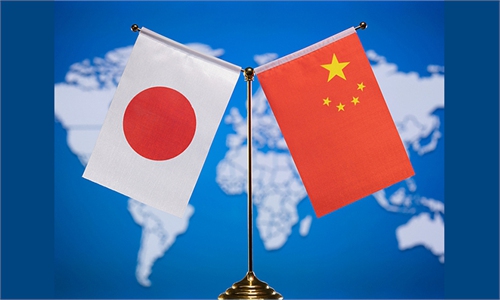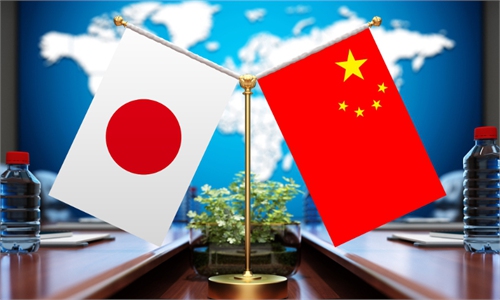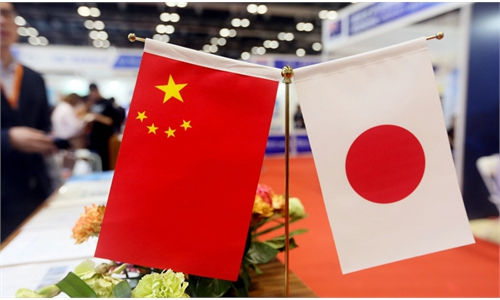
Illustration: Tang Tengfei/Global Times
The Japanese government hopes to tighten export controls against a group of countries, including China and Russia, by introducing restrictions like those implemented by the US and Europe to "prevent goods and parts from being used for military purposes," Nikkei Asia reported on Sunday. If the report is true, Japan's export controls will further disrupt Asian supply chains. China may experience a negative effect, but the Japanese economy will see bigger losses.Some Japanese economists once hoped to see a paradigm of "flying geese" in the shift in Asian supply chains. Like migratory birds flying in formation, economic growth in Asia appears to be following a set pattern, with manufacturing industries gradually shifting from the more advanced economies to the less developed ones as the costs increase for the forerunners, or "lead geese."
According to those Japanese economists decades ago, the lead goose in the formation is Japan. The second tier consists of industrialized economies including South Korea. Following hot on their tails are the ASEAN economies. More recent additions to the flock are China and India.
As a forerunner, Japan established its leading position in Asian supply chains. For a long time, Japan has exported high value-added industrial products, including core components, electronics parts and semiconductors to other Asian countries, bringing substantial profits to Japanese companies.
However, we have seen evidence that the paradigm of "flying geese" is disintegrating. Some pessimists even believe that it has collapsed. Even if it isn't that bad, Japan's potential export controls will deal it a fatal blow.
At a time when the restructuring of the Asian industry chain seems to have accelerated amid global economic uncertainty, Japan's potential export controls will further narrow the advantages of Japan as a "lead goose" in Asian supply chains.
This will have a profound impact on the country's long-term economic growth and even the entire Asian industry chain. If Japan further expands export restrictions, it will force downstream countries in the supply chain, especially China, to make greater efforts to develop high-tech industries such as semiconductors.
The paradigm of "flying geese" will be replaced by the parallel development of high-tech industries in multiple Asian countries. Japan will no longer be a bellwether. The country will face fierce competition from other Asian countries.
If Japan were to follow similar actions as the US in tightening export controls, which would affect trade with China, it would seriously harm the interests of Japanese businesses and backfire on the Japanese economy.
The Japanese government has been getting drawn into the US technology war against China for some time. On July 23, 2023, new regulations on semiconductor exports from Japan officially came into effect. Although Japanese officials have denied that the policy is targeting any specific country or following the US, these restrictions clearly affect the development of Japanese semiconductor equipment and material manufacturers in the Chinese market. They disrupt mutually beneficial cooperation in the Asian supply chain.
If Japan further expands export restrictions and continues down the misguided path of politicizing economic and trade issues and serving US interests, it will only cause greater harm to the Japanese economy and businesses, because artificial political interference goes against the principles of economic and free trade rules.
China is still Japan's most important export market, highlighting its significance to the Japanese economy and businesses. Japanese companies enjoy higher returns on investment in the Chinese market compared with other markets. It's hoped that the Japanese government can prioritize Japanese businesses' interests and Japan's economic development. It should abide by international economic and trade rules, avoid political interference in economic and trade cooperation, and not be influenced by political interference from the US.
If Japan ignores this advice and insists on expanding export restrictions, it will further disrupt Asian supply chains. The Chinese economy is likely to experience a negative impact in the short term, but the collapse of the "flying geese" paradigm also means opportunities.
The good news is that China is increasingly putting more focus on technological innovation as it strives to put fresh impetus into an economy where external uncertainty has been exacerbated. The Chinese economy has shown strong resilience and is able to take the opportunity of global industry chain restructuring.
The author is a reporter with the Global Times. bizopinion@globaltimes.com.cn



